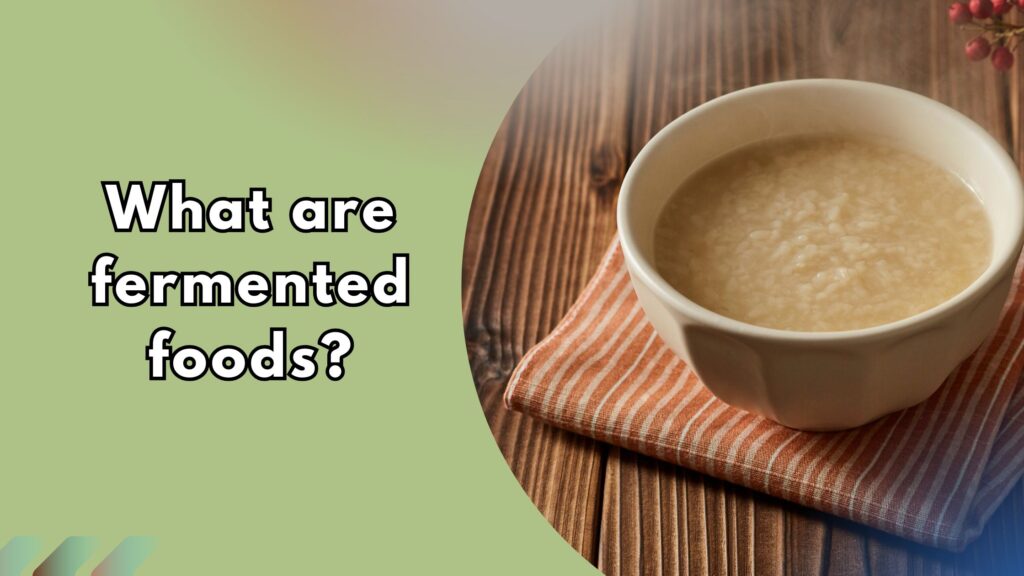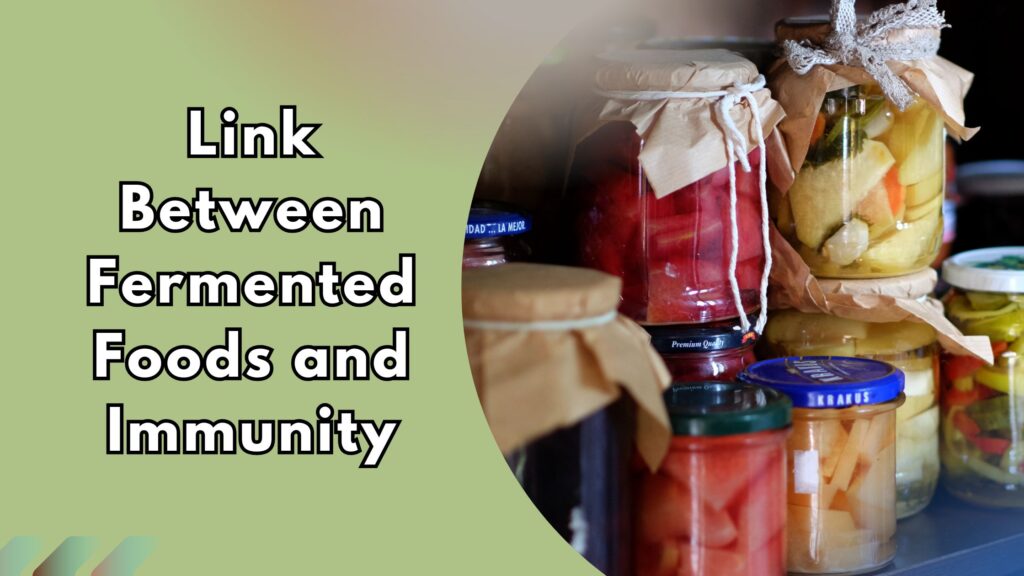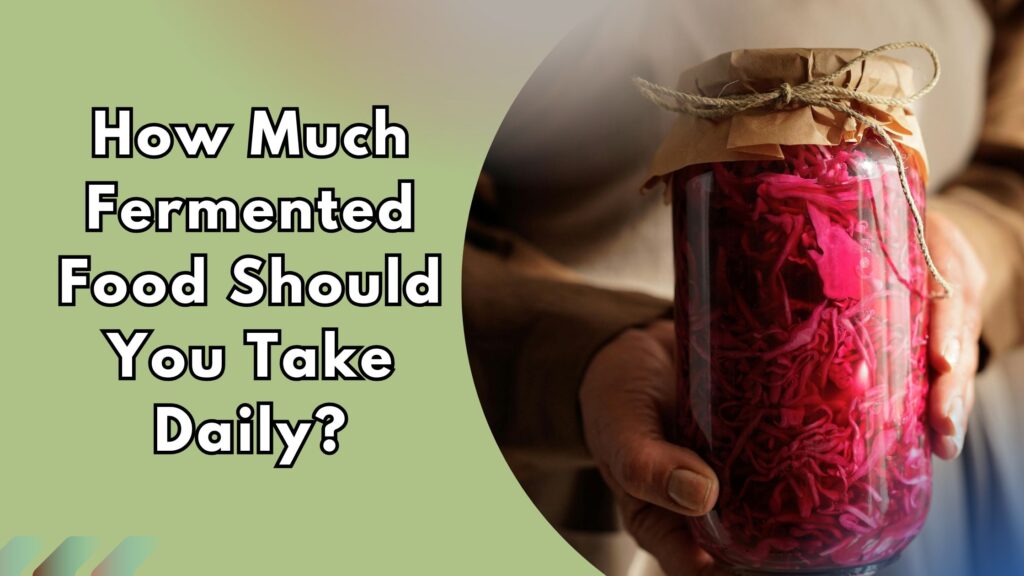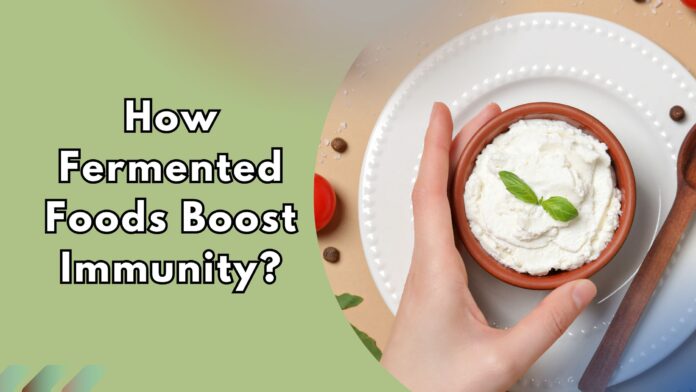For centuries, Indian kitchens have been home to a variety of fermented foods that most of us eat regularly, sometimes without even realizing their importance. From curd and kanji to dosa, idli, fermented foods have always been part of our everyday meals. But what role do they actually play in keeping our gut health optimal? Do fermented foods really boost immunity? And how many of them should we be eating every day? Let’s break these questions down and understand the benefits of eating fermented foods daily in detail.

What are fermented foods?
People ferment foods by letting them rest and age for a certain period, from a few hours to several days. During this time, natural microorganisms like bacteria and yeast start working on them. They break down sugars and starches, which makes the food easier to digest and healthier for your gut health.
These foods contain live organisms called “probiotics” and build a healthy gut microbiome. Friendly bacteria inside your body support digestion, boost immunity, and keep you feeling well.
Here are 10 popular fermented foods you’ll find in Indian kitchens:
- Dahi (Curd): A dairy food made by fermenting milk with natural cultures, packed with probiotics, and easy to digest.
- Chaas (Buttermilk): A light drink made by blending curd with water and spices, perfect for cooling the stomach and helping digestion.
- Achaar (Pickle): Fruits or veggies kept in salt, oil, and spices for natural fermentation, adding both taste and good bacteria to meals.
- Dosa: A thin, crispy dish made from fermented rice and lentil batter, light on the stomach and full of flavor.
- Idli: Soft, steamed cakes made from the same fermented batter as dosa, simple, filling, and gut-friendly.
- Kanji: A tangy drink made in winter by fermenting black carrots or beetroot in water with spices, naturally probiotic.
- Dhokla: A fluffy Gujarati snack made with fermented gram flour or rice-lentil mix, tasty and easy to digest.
- Appam: A South Indian pancake made from fermented rice and coconut batter, soft in the center and crisp at the edges.
- Pakhala Bhaat (Fermented Rice): A dish from Odisha where rice is soaked overnight in water and eaten with curd or veggies, cooling and refreshing.
- Uttapam: A thick version of dosa made from fermented batter, usually topped with onions, tomatoes, or other vegetables.
Related: Foods to Avoid On an Empty Stomach!

What is the Link Between Fermented Foods and Immunity?
Your gut health is central to your immune system. Your gut is home to trillions of microbes, and about 70% of your immune cells live there. Balanced gut bacteria help your body fight infections more effectively. Fermented foods introduce “good bacteria” that help maintain this balance, showing how fermented foods boost immunity.
Research shows that these foods, rich in probiotics and bioactive compounds, can provide an immune system boost by regulating immune cells, reducing inflammation, and supporting healthy gut health. A 2023 study, Are Fermented Foods Effective against Inflammatory and Infectious Diseases?, confirms that including fermented foods daily may strengthen your body’s defenses against infections and support long-term health.
Are Fermented Foods Good for You When Sick?
Yes. If you’re dealing with a mild cold, an upset stomach, or digestive issues, fermented foods can help bring your gut back in balance. They are easy to digest and supply probiotics that your body may have lost during illness or while taking medications.
That said, not all fermented foods are ideal when you’re sick. Some can be heavy, very salty, or “cold” for your stomach, so moderation is key. If you have severe acidity, bloating, or are on strong antibiotics, start with gentler options like plain curd or buttermilk before moving on to dosa, idli, or other heavier fermented foods.
Also Read: How to Heal Your Gut on a Vegan Diet?

How Much Fermented Food Should You Take Daily?
For an average healthy person, including fermented foods in their daily diet can do wonders for their gut health and overall wellness. The exact amount depends on the type of food and how your digestive system reacts. According to the study Health Benefits of Probiotics: A Review, it’s generally safe to consume 1 to 20 billion Colony-Forming Units (CFUs) of probiotics daily.
Here’s a simple daily guide on how you can include fermented foods in your diet to meet your probiotic needs:
- Curd or Greek Yogurt: About 100–150 grams daily, preferably after lunch, can help keep your gut balanced and support immunity.
- Buttermilk: A light North Indian drink made from curd, water, and spices. You can have one glass daily, especially in summer, as it aids digestion and keeps you hydrated.
- Idli/Dosa: 1–2 servings of fermented rice-lentil batter dishes for breakfast can provide probiotics and be gentle on your stomach.
- Pickles/Chutneys: A small portion (1–2 teaspoons) is enough, as these can be high in salt.
Start small if your gut is sensitive, then gradually increase the portions to see how your body responds.
Related: Why Indians Gain Belly Fat!

The Indian Gut Health Connection
India’s food culture is naturally packed with fermented foods, and what’s amazing is how they support gut health. Daily meals often include curd with rice, a glass of buttermilk, or a side of homemade pickle. Every region has its own twist, like Pakhala Bhaat in Odisha, Kanji in North India, or Appam in the South, each carrying its unique probiotics.
These traditional foods are part of why our ancestors stayed healthy. They aren’t just about taste; they are tiny gut boosters. Even if your gut is struggling with bloating, IBS (Irritable Bowel Syndrome), or other issues, including these foods can help restore balance.
Plus, adding fermented foods isn’t just about digestion; they help strengthen your immunity. These foods actively boost your body’s defenses. A healthier India starts with you, one gut-friendly bite at a time. Eating fermented foods daily supports lifelong wellness.

